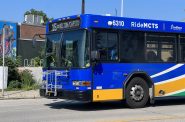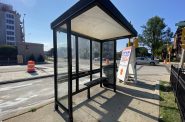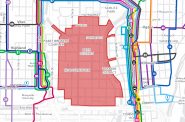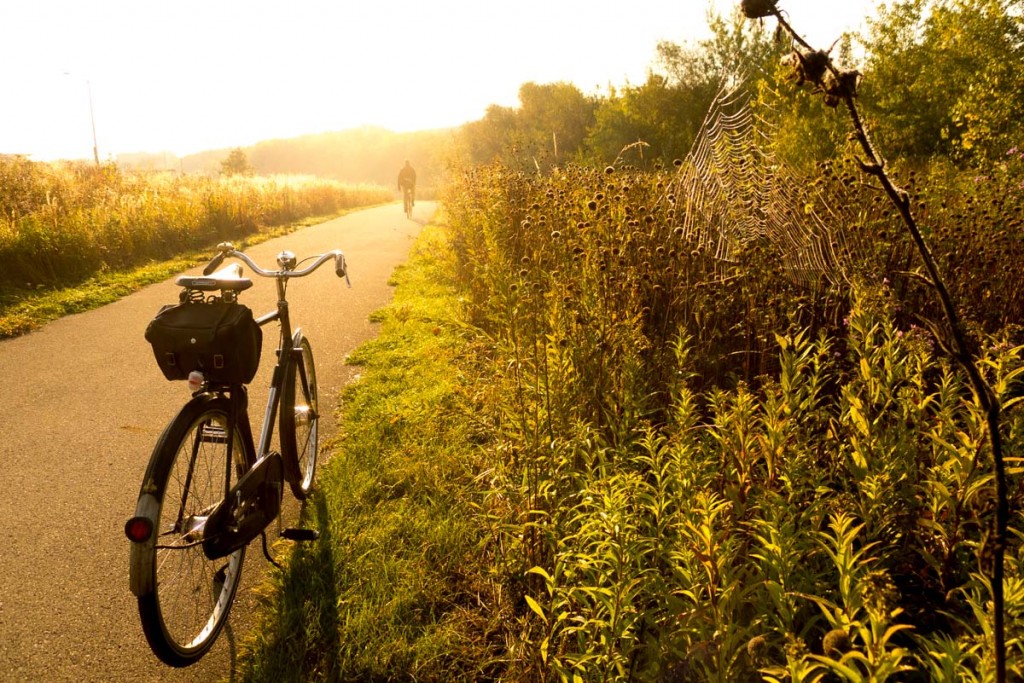$1.5 Billion Impact From Proposed Trails?
Southeastern Wisconsin’s 700-mile trail network will have economic, health benefits, says report by Rails-to-Trails Conservancy.
Southeastern Wisconsin’s future 700-mile regional trail network could bring significant health and economic benefits to the state, according to a report by Rails-to-Trails Conservancy.
Rails-to-Trails Conservancy, a nonprofit that connects people and communities by converting old rail lines into nationwide trail networks, announced a state-based analysis on the impacts of trail systems Tuesday in Milwaukee.
According to the report, the net economic impact of trails in Wisconsin is as much as $1.5 billion. This includes direct trail user spending of $686 million and $833 million in avoided health care costs.
The Route of the Badger already extends 340 miles across southeast Wisconsin, but Rail-To-Trail is working to expand it. The extension will make the trail 700-miles long and will connect Milwaukee to Dousman, Sheboygan to Kenosha, and have trails connecting to Madison and Chicago.
Keith Laughlin is the former president of Rails-to-Trails Conservancy. He was the visionary behind the creation of the Route of the Badger.
“It’s a place were there was already a huge amount of trail on the ground in proximity to a lot of people,” Laughin explained.
The nonprofit has created more than 36,000 miles of trails across the nation and wants to continue by connecting completed trails into a network through their TrailNation plan.
“What we’ve started here we are now trying to replicate and bring it to a lot of other places across the country,” Laughin said. “There are now nine TrailNation projects.”
According to current Rail-to-Trail Conservancy president, Ryan Chao, 53 percent of trips in U.S. would take a 20-minute bike ride; 28 percent of trips would take a 20-minute walk, but 90 percent of trips are taken by car.
“This research is powerful because it proves that connecting trails and walking and biking infrastructure can bring incredible benefits,” Chao said in a statement. “There are quantifiable benefits when we convert short trips to walking and biking — but it takes connected and convenient infrastructure to realize those benefits.”
Kate Nelson is the chief sustainability officer at the University of Wisconsin-Milwaukee. Her family downsized to one car over five years ago, and she started using the trails to get to work by bike. She has around a 40 to 45-minute commute. By using the trails and without the financial burden of maintaining two vehicles, Nelson told WPR that her family was able to pay off debt and connect with the environment.
“It totally changes your life,” Nelson said. “It makes you far more conscious of the trips that you make and how you’re going to get your exercise and how you are going to spend time together. It’s just so much more enriching.”
Nelson said people don’t have to fully commit to using the trails all the time, but using them will often make a difference.
“We don’t give ourselves that time in our lives,” Nelson said. “You’re going to go to the gym, you’re going to get changed and you’re going to spend 30 to 60 minutes at the gym. So you’re going to spend the same amount of time.”
Listen to the WPR report here.
Trail Networks Could Bring Economic And Health Benefits To Wisconsin was originally published by Wisconsin Public Radio.
Transportation
-
MCTS Adds 28 New Buses
 Jul 13th, 2024 by Graham Kilmer
Jul 13th, 2024 by Graham Kilmer
-
MCTS Designing New Bus Shelters
 Jul 10th, 2024 by Graham Kilmer
Jul 10th, 2024 by Graham Kilmer
-
MCTS Updates RNC Bus Detours To Better Serve Downtown, Riders
 Jul 9th, 2024 by Jeramey Jannene
Jul 9th, 2024 by Jeramey Jannene























Cycling is high on the list of issues that politically correct conservatives need to oppose. When Scott Walker was County Executive, he opposed putting bike racks on buses. In Republican State budgets in Madison, historically there have no State funding for bike trails. Bike trails in the State are good for tourism and are a nice quality of life activity for citizens. As long as Republican Luddite legislators keep on getting elected in Madison, nothing will change.
“53 percent of trips in U.S. would take a 20-minute bike ride; 28 percent of trips would take a 20-minute walk, but 90 percent of trips are taken by car.”
This data is probably correct, but here is my question: Are the proposed rail-to-trail extensions addressing local bicycle transportation potential with long trails through areas of low population density?